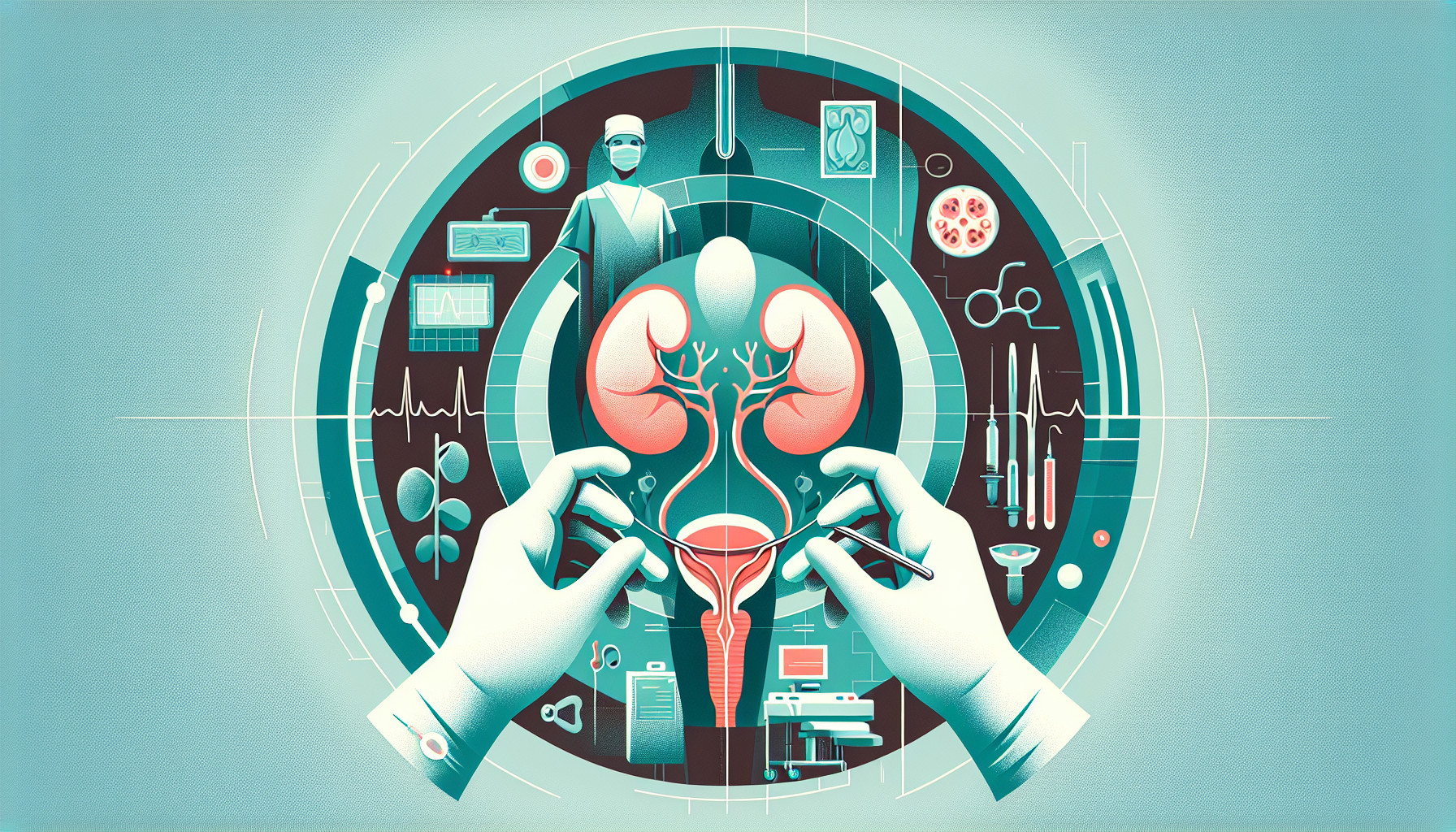Our Summary
This research paper examines how bladder, ureter, and urethral injuries are identified and treated during and after urogynecology surgery, which is surgery related to female pelvic organs. This includes reviewing the relevant anatomy and discussing the surgical strategies used to manage such injuries, both when they are discovered during surgery and after surgery.
FAQs
- What is the surgical management for bladder, ureteric and urethral injuries that are diagnosed during and after urogynaecology surgery?
- What is the relevance of applied anatomy in the context of bladder, ureteric, and urethral injuries?
- How are bladder, ureteric and urethral injuries presented and managed in urogynaecology?
Doctor’s Tip
A helpful tip a doctor might give a patient about bladder surgery is to make sure to follow all post-operative care instructions carefully, including drinking plenty of water to help flush out the bladder and prevent complications. It is also important to avoid heavy lifting or strenuous activities for a certain period of time as advised by the doctor to allow the bladder to heal properly. Additionally, any signs of infection or unusual symptoms should be reported to the doctor immediately for prompt treatment.
Suitable For
Patients who may be recommended for bladder surgery include those with:
Bladder cancer: Patients with bladder cancer may undergo surgery to remove cancerous tissue or the entire bladder.
Urinary incontinence: Patients with severe urinary incontinence that does not respond to other treatments may be recommended for surgery to improve bladder control.
Bladder outlet obstruction: Patients with conditions such as bladder stones or enlarged prostate that cause obstruction of urine flow may require surgery to relieve the obstruction.
Bladder diverticula: Patients with bladder diverticula, which are pouches that bulge out from the bladder wall, may require surgery to remove the diverticula and improve bladder function.
Bladder prolapse: Patients with bladder prolapse, where the bladder drops down into the vagina, may undergo surgery to repair and support the bladder.
Bladder fistula: Patients with bladder fistulas, which are abnormal openings between the bladder and other organs, may require surgery to close the fistula and prevent urine leakage.
Neurogenic bladder: Patients with neurogenic bladder, a condition where the nerves that control bladder function are damaged, may require surgery to improve bladder emptying and prevent urinary retention.
Overall, the decision to recommend bladder surgery is based on the specific condition of the patient and their individual needs and treatment goals. It is important for patients to discuss the potential risks and benefits of surgery with their healthcare provider before making a decision.
Timeline
Before bladder surgery:
- Initial consultation with a urologist or urogynecologist to discuss symptoms, medical history, and treatment options.
- Preoperative evaluations such as blood tests, urine tests, imaging scans, and possibly a cystoscopy to assess the bladder.
- Discussion of the surgical procedure, risks, benefits, and expected outcomes with the patient.
- Preoperative instructions such as fasting before surgery and medications to stop taking.
- Admission to the hospital or surgical center on the day of surgery.
After bladder surgery:
- Recovery in the hospital or surgical center under medical supervision.
- Monitoring of vital signs, pain management, and possible catheterization to drain the bladder.
- Instructions on postoperative care, including wound care, activity restrictions, and medication management.
- Follow-up appointments with the surgeon to assess healing and address any concerns or complications.
- Gradual resumption of normal activities and possible rehabilitation or physical therapy to aid in recovery.
- Long-term follow-up to monitor for any recurrence of symptoms or complications related to the surgery.
What to Ask Your Doctor
What type of bladder surgery do I need and why?
What are the potential risks and complications associated with the surgery?
How long is the recovery process expected to be?
Will I need to make any lifestyle changes or follow a specific diet after the surgery?
What kind of follow-up care will be needed after the surgery?
Are there any alternative treatment options to consider?
How experienced are you in performing this type of bladder surgery?
What is the success rate of this surgery for patients with similar conditions to mine?
How will the surgery affect my bladder function and urinary continence?
What should I do if I experience any unusual symptoms or complications after the surgery?
Reference
Authors: Kaestner L. Journal: Best Pract Res Clin Obstet Gynaecol. 2019 Jan;54:2-11. doi: 10.1016/j.bpobgyn.2018.06.007. Epub 2018 Jun 28. PMID: 30143389
